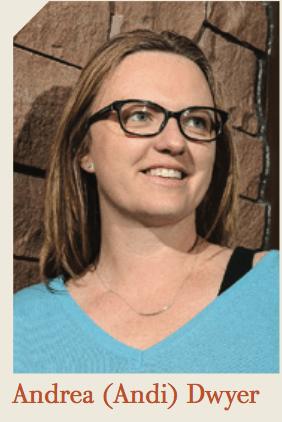
Credit: University of Colorado Cancer Center
Is there ever a truly good time for a colonoscopy? Even with the recommendation of a primary care physician, it’s easy to procrastinate or simply forget to schedule an appointment with your friendly neighborhood endoscopist. That’s why the Colorado Cancer Screening Program (CCSP) and partners have been exploring ways to remind patients – to prod them, if you will – in places that patients will notice. Namely via text and social media. Results of the initiative, called EndCancer, are published this week in the journal mHealth.
“The idea was to start a text messaging campaign for cancer prevention,” says Andrea (Andi) Dwyer, University of Colorado Cancer Center investigator, and director of the CCSP.
Basically, advertising including radio slots, Facebook promotions and even locally-posted flyers encouraged people in the community to text a given number to opt into information and reminders about cancer screening. Radio and flyers were largely unsuccessful in driving enrollment. But Facebook advertising resulted in 22,600 Facebook users exposed to ads.
“Facebook was a good mechanism. Engagement was high with Facebook ads, and those who viewed ads clicked through to the sign-up page, an indication of intent to enroll,” Dwyer says.
And once people signed up, they stayed enrolled. A full 96 percent of participants who texted to sign up stayed enrolled to receive all planned information/reminders. The group sees social media, and specifically Facebook, as a way to reach people living in areas where information about cancer prevention might otherwise be lacking, for example in rural areas of Colorado.
“The challenge was getting enrollment in an opt in fashion,” Dwyer says, suggesting that in a future iteration of the project, the group might explore opt-out rather than opt-in strategies, potentially including enrollment through consent at primary care locations or bundling the delivery of information via text with existing health management apps.
Technically, the answer to whether Facebook advertising can prevent cancer remains unanswered – it’s impossible to tell how many patients who otherwise would have developed cancer were caught early due to the group’s text-based information program. But the study did confirm that new strategies of communication, can be an effective way to reach hard-to-reach populations with information and strategies for cancer prevention.
###
Media Contact
Garth Sundem
[email protected]
Original Source
https:/
Related Journal Article
http://dx.




